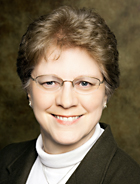
[Editor’s note: The author is a private practice physician touching on issues that may become increasingly important to long-term care providers.]
Part of the scheme of ObamaCare is to set up Accountable Care Organizations. In New Jersey, they are being set up for the Medicaid population. As is typical of all “innovative” government programs, they might seem good on paper but are really nothing new.
They may appear to solve problems in the old Medicaid system, where physicians are so underpaid that few enroll, but new problems and cost overruns will inevitably occur.
Accountable Care Organizations (ACOs) are a rehashed version of the failed closed HMO model of the 1970s and 1980s, where the government poured millions of dollars into private enterprises that supposedly were rewarded when they kept the patients well. Once the federal dollars dried up, these entities failed under the heavy weight of their own bureaucracy and the insatiable demand for the free care that was expected.
The administrators of these failed entities stashed away their generous salaries and have now retired to warmer climates. Now their successors are trying to resurrect the model, figuring that those who remember the central Jersey RCHP (Rutgers Community Health Plan) will not remember why it failed.
The purpose of good medical care is to make the patient whole—to diagnose disease as early as possible and to develop a treatment strategy to allow the patient to live an independent, happy and productive life. The purpose of good health care is to minimize the need for more health care.
Instead, we have created an underclass of people dependent on Medicaid, one in eight New Jersey residents. It is hard to fathom that one in eight New Jersey residents need government to care for them. Instead of being a nation of hard-working independent citizens, we have increasingly become a nation of people with their hands out. Have we forgotten our American roots?
How can our citizens have a sense of accomplishment when the government is doing for us what we ought to be doing for ourselves? Of course, we all know that some are poor through no fault of their own, but one in eight? Something is dreadfully wrong here.
The problem with the setting up of Medicaid ACOs is that they are attempting to make the physicians accountable for the behavior of many who have a tendency to make poor choices and be rather irresponsible and unaccountable. The person who ought to be most accountable should be the patient himself, yet these systems go on the assumption that this is an impossible dream.
Medicaid recipients pay nothing for their health care, but are told they are entitled to free care. People on Medicaid are twice as likely to show up at the ER than to see their own doctor. Why make an appointment and wait for care at a private physician office when the hospital is staffed 24/7 and Medicaid will pay for a cab to get him there?
From 2002-2007, poor patients visited the ER 12,600 times for head colds, 7,700 for ear infections and 7,600 times for viral infections. This is unaccountable behavior.
Government medicine never seems to chide the patient for his over-indulgences, but rather enables him to magnify symptoms that will keep him on the public dole. People on Medicaid often fear the day when they get well or find a job as the “benefits” will end.
Medicaid is an irresponsible waste of money, and unfair to the taxpayers who must foot the bills. The taxpayers are hit with a bill of $10 billion for Medicaid in New Jersey, where the total state budget is $33 billion. And ObamaCare promises to increase the Medicaid rolls even further.
Many physicians are ready to make a deal. Allow poor people access care in free non-government charity clinics run mostly by kind-hearted volunteers. Volunteer physicians would donate four hours per week to care for the poor. No entitlement, no billing, no claim forms, no CPT coding. Just kind, compassionate, free, uncompensated care.
As their only reward, physicians would ask the state to provide medical malpractice coverage for their entire practices—the same coverage given to military physicians and those who teach in the medical school hospitals. No premium would be paid, but patients would be compensated by the state if a real injury occurred.
This non-bureaucratic solution would provide a kinder and more adequate solution to help the poor overcome their poverty and would end the crushing tax load that stifles initiative. It could be morning in America once again.
Alieta Eck, MD, has been in private practice with her husband, John Eck, MD, in Piscataway, NJ, since 1988. She and her husband founded the Zarephath Health Center, a free clinic for the poor and uninsured that currently cares for 300 to 400 patients per month utilizing the donated services of volunteer physicians and nurses. In 2009, she joined the board of the Association of American Physicians and Surgeons.



